2009 Volkswagen Jetta 2.0 TDI Review
In the past five years, Volkswagen has had its pants around its ankles. Gas tripled in price, Al Gore invented the environment and the brand once known for frugality didn’t have US products that could compete on fuel economy. Volkswagen’s diesel-powered Jetta and Passat weren’t even legal in VW-friendly California, NY and Massachusetts. After miles of regulatory legwork, VW brought one of its new generation European diesels up to fifty-state compliance. The Jetta 2.0 TDI hits dealers this fall. So is it The One?
The only change is underhood. This means the Jetta TDI looks like a regular Jetta. And that means it looks like a Corolla. Cut to the chase: this generation of VW’s best-selling product will never muster the charisma of the past model with its tidy mini-luxe styling. But it’s certainly no worse than the look of the cheese-wedge Civic or botoxed Focus. Just don’t mention the Mazda3.
The TDI’s interior is fine; it’s nice, it’s well built, it’s a list of mediocre compliments. Next?
If you’ve been car-aware since the Mark V Jetta debuted four years ago, none of this is news. Nor is the fact that VW offers a diesel engine. But while VW sold the 1.9-liter four-cylinder turbodiesel for the past several years, you may not know the 1.9’s history.
This 100 horsepower oil burner was first built in 1820. The metalsmith used bronze, and then died from boredom. Although VW has been selling the 1.9 as a car engine of late, in the 1920s it was marketed as a “Clatterynoisedervish;” a device designed exclusively for frightening pigeons. And though the 1.9 could deliver some 40+ MPG highway, it was mostly out of necessity; if you stopped for fuel, you ran the risk of your passengers refusing to get back into the car.
And now the good news: the Jetta’s new diesel engine. The TDI makes none of the deafening knocks, clanks or clapping sounds that lead you to think that you’re in a badly-disguised delivery van. It sounds like a boring luxury car inside, and only ever-so-slightly louder from the outside (at idle). The 2.0-liter common rail turbocharged oil burner makes 140 horsepower and a “suck my particulates, Civic” 236 lb·ft of torque. For reference, the 2.0-liter turbo gas engine in this writer’s GTI only stumps-up 207 lb·ft of twist.
Better yet, the Jetta TDI is nearly as much fun to drive as the GTI. Wipe up that nose-ejected coffee off your keyboard. In Europe, VW cranks this engine to 170 horsepower to create the GTI’s kid brother, the Golf GT.
Obviously, the diesel engine doesn’t parallel the slap-happy enthusiasm of the GTI’s mill. Nor can it rev as high; the TDI redlines at 4500 rpm. But the oil burner’s punch is smoother and more linear than its petrol-powered equivalent. There’s no slingshot effect. You just woooooosh from 30 to 60 mph without an ounce of effort. Plowing through highway traffic, hammering around tight corners, and sprinting up a hill, it’s a thoroughly willing powerplant. You get a fairly quick-revving mill without sacrificing the surging power you like. At any speed.
The suspension is more forgiving than in the GTI, but it’s still taut. As a result, you give up very little in terms of handling versus VW’s hot hatch. Seriously. The Jetta TDI rides a little like it sits on a safe, predictable, controllable Merc platform, but with sharp turn-in and genuine steering feedback.
Both transmission choices—the six-speed stick or the six-speed DSG (paddle shift flappy thingy with a full auto mode)—are superb options. The DSG is perfectly matched to the oil burning engine, keeping you in the meat of the powerband at all times. The cog-swapper may not surprise and delight Hondaphiles, but it’s easy enough to drop in the slot, to access the TDI’s tower of power.
Comparing the Jetta TDI dynamics with a comparably priced Civic, Corolla, Camry or Accord is like bringing a professional debt collector—with his pillowcase full of doorknobs—to a fist fight. Of course, there’s the MSRP vs. mileage vs. price-of-diesel-fuel debate. If you’re seriously crunching numbers, you likely don’t want this car. Besides, as Mr. Lang will tell you, buying any new car isn’t frugal.
My argument for the Jetta TDI is simple: at $23K it’s cheaper than a Jetta GLI, almost as much fun, and you’ve got to stop for fuel less often. Well, never, obviously; and the GLI and GTI require high-test. The Jetta TDI is also rolling vindication for all those American pistonheads who pointed at Europe’s oil burners and said, see? See? But is the Jetta TDI VW’s NA’s savior? Are you kidding? They’ll sell 17 of them. But those 17 owners will be thrilled.
Latest Car Reviews
Read moreLatest Product Reviews
Read moreRecent Comments
- MaintenanceCosts I already set out total costs, so this time I'll list what's had to be done on my cars (not counting oil changes, recall, or free services):2019 Bolt (25k mi): new 12v battery, pending tires & battery cooling service2016 Highlander (from 43k to 69k mi): new front rotors, new pads all around, new PCV valve, 2x 12v batteries, light bulbs, pending tires2011 335i (from 89k to 91k): new valve cover gasket, new spark plugs, light bulbs, pending rear main seal1995 Legend (from 185k to 203k): timing belt/water pump, new EGR valve + pipe, struts, strut bushings, drive axles, tie rods, rear control arms, other suspension bushings, coolant hose & brake lines throughout, belts, radiator, valve cover gaskets, new power antenna, 12v battery, coils, spark plugs, tires, rear pads... it's an old car!
- VoGhost Consistent with CR's data. I've spent about $150 total on the Model 3 in six years of ownership, outside of tires.
- VoGhost It's just plain sad that Posky doesn't know that EV batteries are warrantied for 8 years / 100K miles.
- Jkross22 It used to be depreciation was the most expensive part of car ownership. Seems like those days are over (New EVs and lux cars excluded). Maintenance + insurance have taken over. Dealerships offering 2 years of maintenance means nothing. That's $200 tops. It's the unexpected repairs - a wiring harness, computer module, heater core, AWD problems - that will cost dearly. Brakes can be expensive since many cars now can't have rotors resurfaced. Even independents are charging a lot for this work.
- FreedMike VW tossed in two years' maintenance on my car, and the next one's due after the lease is up. But all the car's needed has been oil changes and tire rotations. Unfortunately, the OEM tires (Hankook Kinergy) were unrepentant trash and needed to be replaced at around 23,000 miles. So...my maintenance cost over over a little under three years has been t $800 for the new tires. That sucks, but the new tires (Goodyear Eagle Sport) are a massive upgrade over the Hankooks. Ah well.



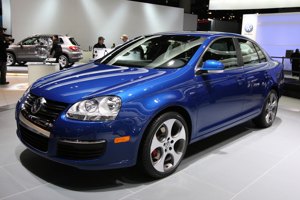



















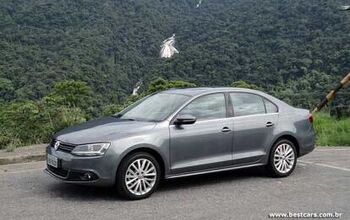
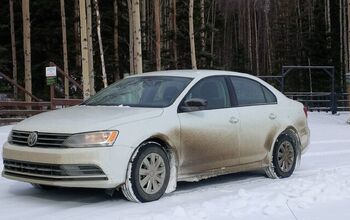
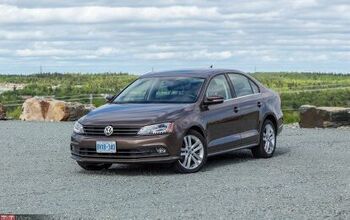
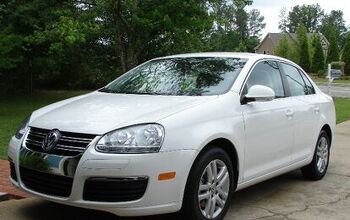
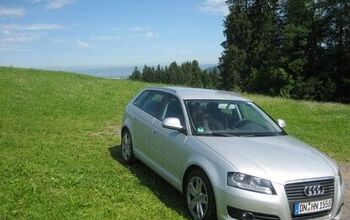




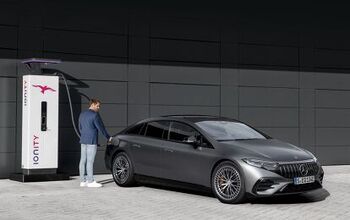





Comments
Join the conversation
anyone want to take over my lease on a '09 subaru wrx? i want this car bad!!!!
Justin, you missed 2 big points of this car that are important to many, but not obvious from a drive: RESALE: At 300,000 miles, this car will still fetch over $10,000 whereas any gas-powered Japanese car that lasts that long will fetch $20/ton SAFETY: If you get t-boned by an SUV in a European-designed car you still have a good chance of living. But in a Japanese or American enono-box ... not so much so. My wife is going into court as a witness for the insurance company. She was in the front of the traffic 8 months ago when a large dump-truck blew a red light at over 50 MPH and t-boned a new-model Jetta sedan. They called off the air-ambulance when they found the woman driving the Jetta was in stable shape with no serious injuries. The car was a few inches narrower, but still had the windshield in place (completely shattered) and the door and hood latches still operated. I think some of the paramedics are considering Jettas for their next vehicle after that crash....